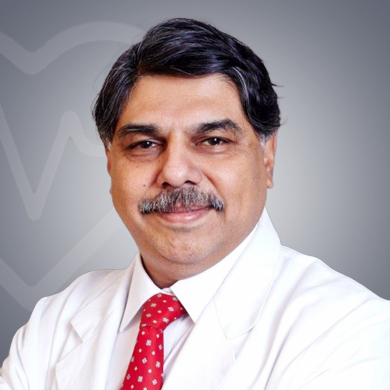
Infertility Specialist
Fortis La Femme, Greater Kailash II , Delhi, India26 Years of experience
Speaks: English
Dr. Hrishikesh Pai is a well-known name in the field of gynecology and IVF Speciality in the Delhi-NCR region. He has more than 29 years of clinical experience. He is the founder and managing director of Bloom IVF India. The bloom IVF India runs 9 centers across the country including the centers at Lilavati hospital & Bhatia hospital Mumbai and Fortis Hospitals in New Delhi, Faridabad, Noida, Mohali, Gurgaon, and Navi Mumbai. For providing high-quality infertility treatment to the poor people, Dr. Pai had also introduced the IVF unit at the D Y Patil Medical College. Dr. Pai completed his MBBS from GS Medical College, Mumbai in the year 1981. Later in 1985, he completed his MD in Obstetrics & Gynecology from the University of Mumbai. In the year 1990, he was awarded a fellowship in Reproductive Biology by Royal Women’s Hospital Melbourne, Australia. In 2007, Dr. Pai completed his Masters in Clinical Embryology & Andrology from Eastern Virginia Medical School. Dr. Pai is the recipient of various awards such as RK Excellence Awards, 2010, 21st LIONS Gold Award, 2015, Navshakti award for yeomen service in medicine in 2008, 2008, and Medscape India Unite for care National award for excellence in Gynecology, 2014.
Dr. Hrishikesh Pai is one of the most eminent and expensively experienced gynecologists and reproductive medicine specialists. He had immensely contributed to Indian's family planning program and was the pioneer in introducing office hysteroscopic surgery in India. He has introduced various novel techniques related to infertility and gynecology in India such as ovarian tissue freezing for cancer patients, IMSI and embryoscopy, and assisted laser hatching. Because of his experience and expertise, he was also selected for different prestigious positions in various organizations.

Share Your Experience about Dr. Hrishikesh Pai
